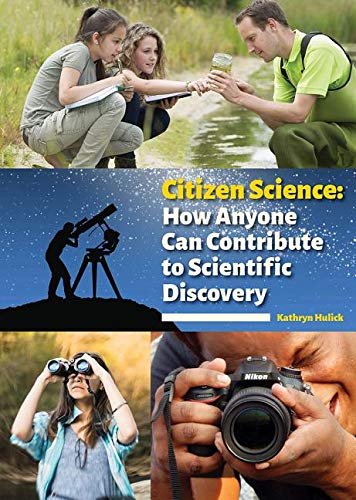The Rise of Citizen Science: How Anyone Can Contribute to Scientific Research

Citizen science is a rapidly growing field that allows members of the public to participate in scientific research projects. This can involve collecting data, analyzing data, or even designing and conducting experiments. Citizen science projects are typically led by scientists who provide the necessary training and support for volunteers.

There are many reasons why citizen science is becoming increasingly popular. First, it can help scientists collect data on a larger scale and at a lower cost than would be possible if they had to do it all themselves. Second, citizen science can help scientists engage with the public and raise awareness of their work. Third, citizen science can provide volunteers with a sense of purpose and accomplishment, and can help them learn more about science.

There are many different ways that people can participate in citizen science projects. Some projects involve collecting data through online platforms, while others require volunteers to go out into the field to collect data. Projects can be short-term or long-term, and can focus on a wide range of topics, including astronomy, biology, ecology, and environmental science.
No matter what your interests are, there is sure to be a citizen science project that you can participate in. By volunteering your time and expertise, you can help scientists make important discoveries and contribute to our understanding of the world around us.
Benefits of Citizen Science
There are many benefits to participating in citizen science projects. These benefits include:
- Helping scientists collect data: Citizen science volunteers can help scientists collect data on a larger scale and at a lower cost than would be possible if they had to do it all themselves. This can help scientists to address important research questions that would otherwise be difficult or impossible to answer.
- Engaging with the public: Citizen science projects can help scientists engage with the public and raise awareness of their work. This can help to build trust between scientists and the public, and can also help to inspire young people to pursue careers in science.
- Providing volunteers with a sense of purpose and accomplishment: Citizen science volunteers can gain a sense of purpose and accomplishment from participating in projects that make a real difference. They can also learn more about science and the natural world through their participation.
- Creating a community of like-minded individuals: Citizen science projects can help to create a community of like-minded individuals who share a common interest in science. This can be a great way to meet new people and make friends, and can also help to foster a sense of belonging.
How to Get Involved in Citizen Science
If you are interested in participating in a citizen science project, there are a few things you can do to get started:
- Find a project that interests you: There are many different citizen science projects to choose from, so take some time to find one that you find interesting and engaging.
- Learn more about the project: Once you have found a project that interests you, learn more about it by visiting the project’s website or contacting the project leaders.
- Sign up to participate: Once you have learned more about the project, sign up to participate. This usually involves creating an account on the project’s website or filling out a registration form.
- Start contributing: Once you have signed up to participate, you can start contributing to the project by following the instructions provided by the project leaders.
